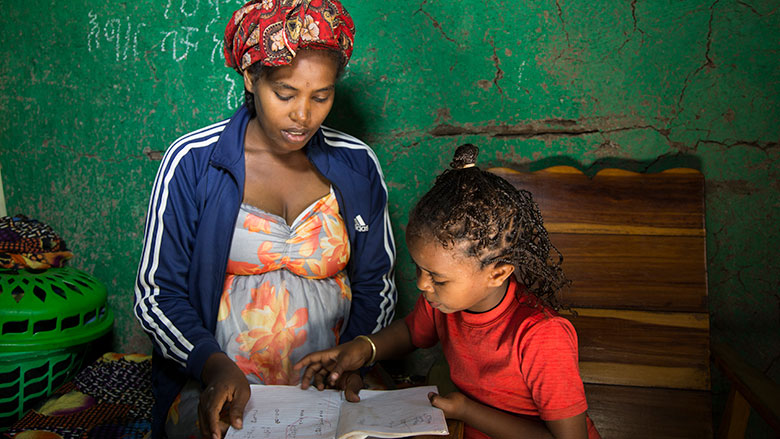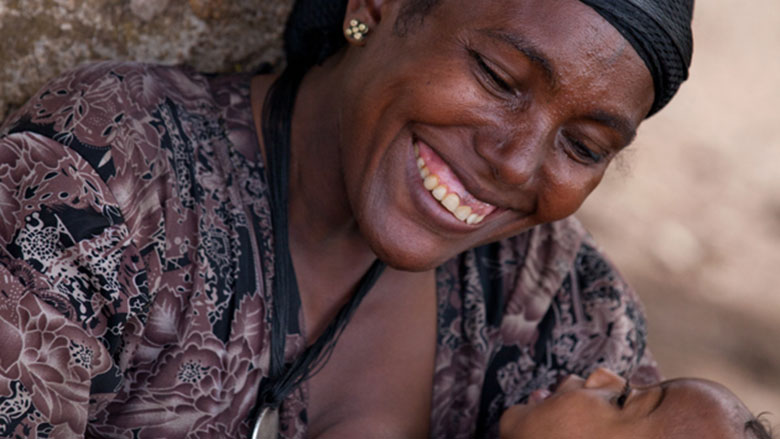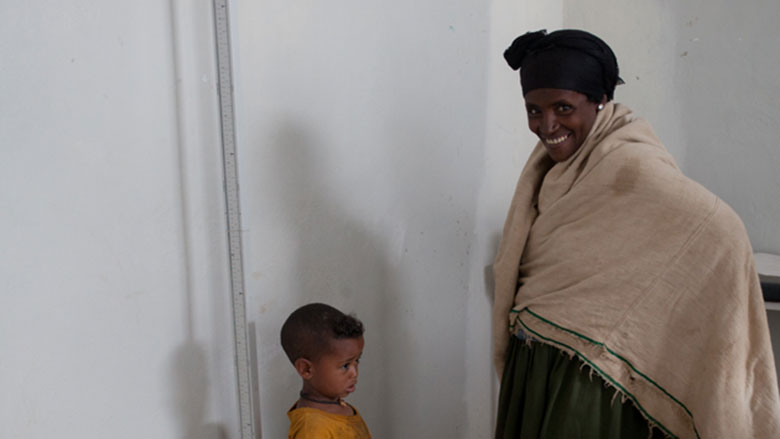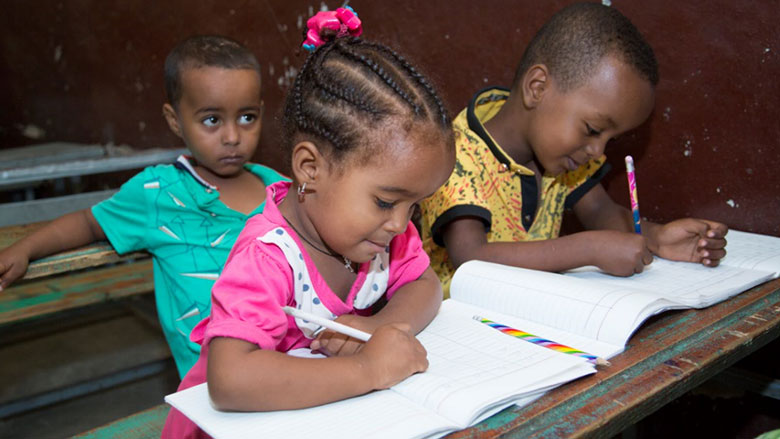Enhancing Shared Prosperity through Equitable Services (ESPES)
Since 2015, the Enhancing Shared Prosperity through Equitable Services (ESPES) program ($1.2 billion) has worked to ensure that Ethiopia’s entire population benefits from basic social services. It builds on the successes of its precursor, the Promoting Basic Services (PBS) Program, and uses block grants to regions and woredas (districts) for delivering basic social services in health, education, agriculture, and rural roads, water and sanitation.
The support achieved notable results in ensuring better access to services and contributed to Ethiopia’s impressive gains in basic services, which has been a key driver behind poverty reduction and improvement in human development outcomes.

Providing Quality Education
Complementary to the ESPES program, the Bank’s additional support to human development outcomes is channeled through the General Education Quality Improvement Program (GEQIP), Ethiopia’s flagship education reform program. Now in its third phase, with $300 million from the International Development Association, the program is helping Ethiopia to transform its education system to make it more focused on student learning improvement.
In higher education, the Bank supports four Centers of Excellence ($6 million for each center from 2017-2022) in universities as part of the Eastern and Southern Africa Higher Education Centers of Excellence Project. The project is helping these centers to deliver quality post-graduate education and build collaborative research capacity in the areas of railway management, drug development, water management, and climate smart agriculture.
Investing in the Nations’ Health
As heath is a key aspect of human development and the Human Capital Project, the Bank is supporting the government’s Health Sector Transformation Plan through $330 million health Program-for-Results financing. The program aims to improving maternal and child health services such as access to quality reproductive, maternal, neonatal, child, adolescent health and nutrition are among the key areas of intervention. The program is also helping Ethiopia make progress towards universal access to health care by 2020.

Providing Social Safety Nets
Social Safety Nets are an important component of the human development agenda in Ethiopia. Launched in 2005, the Bank supported Productive Safety Net Program (PSNP) is another flagship program that provides regular cash or food transfers to eight million people food insecure people - about four million in areas affected by drought.
Households with able-bodied adult members take part in public work activities (that address the underlying causes of food insecurity) in exchange for transfers, while those without receive unconditional “direct support” transfers.
Through the Urban Productive Safety Net Program (UPSNP), the Bank is also supporting the government to raise the incomes of the urban poor in 11 cities. The UPSNP is the first phase in the government’s long-term Urban Safety Net Strategy, which aims to reduce poverty and vulnerability among the 4.7 million urban dwellers living below the poverty line in over 970 cities and towns in Ethiopia. The UPSNP is financed by $300 million from IDA.
Improving Nutrition
Nutrition outcomes are still quite low in Ethiopia, 38% of under-five children suffering from chronic malnutrition or stunting and 29% are underweight, resulting in serious and costly consequences including impaired cognitive and physical development, chronic morbidity and death.
The Bank supports the government’s nutrition agenda through various channels including analytical work and projects. Nutrition outcomes are also supported under the second Agricultural Growth Program (AGP). The program is helps to identify and introduce to farmers nutrition dense crops and livestock technologies and reducing post-harvest loss.

Investing in Infrastructure and Water
Human development outcomes are further supported through other operations such as the Urban Local Government Development Program which is helping cities provide better urban governance, infrastructure, and public services in sectors like education and health. The program also supports construction of roads which makes access of health facilities during emergencies and child delivery easier. Other transport projects are also helping to reduce accidents and commute times for service providers and users in health and school facilities.
The Bank has also invested in Water Supply, Sanitation and Hygiene (WaSH) to ensure that people have clean water and lead a healthy life. All these investments are critical for building Ethiopia’s most valuable asset- its people.


